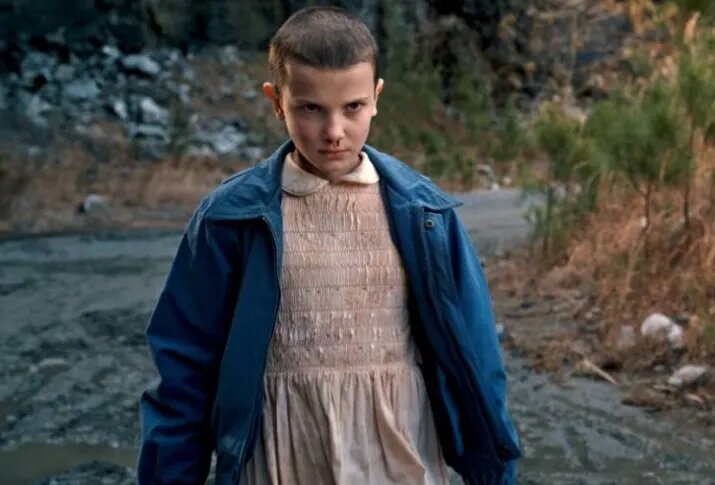Stranger Things and the Capitalist Demogorgon
Stranger Things. Image courtesy of Netflix.
When Stranger Things debuted on Netflix in 2016 it was a pure joy. Coming out of nowhere its simple concept executed with great confidence and skill, steaming with nastalgia, hit all the right notes and blew audiences away. I hope the casting director got a big bonus, because the cast of unknown child actors was perfect - great chemistry and of course Millie Bobby Brown had the kind of screen presence you just can’t teach portraying the otherwordly Eleven.
The plot itself has strong Outer Limits vibes - kid goes missing in an alternate dimension, monster from that dimension starts to cross over, some telekenesis ensues. There’s nothing particularly revelatory in the structure. But the execution was spot-on. It reminds me of Broadchurch in that way - a very formulaic murder mystery but executed with such skill as to elevate it beyond the limits of the genre. Same thing with Stranger Things. The soundtrack (a glorious retro-synth thing of beauty), the acting, the writing, the characters were all great and elevated the show beyond its campy sci-fi premise.
And then of course they very smartly fed the nastalgia machine by lacing the show from top to bottom with references to American pop culture of days goneby - but not too far gone, so that most of the people watching would get hit with big pangs of longing as they recognized various reference. The period setting backdrop was just the icing on the cake, but really the show was able to shine because it paid attention to the important things and it told a simple story wth compelling, sympathetic characters well.
Like the best Spielberg or Stephen King stories, Stranger Things is very good at submerging you in the world of these kids so even as they grapple with some absurd comsic rift in space-time, it feels at the same time grounded and reminds the viewer of something they themselves once went through - the experience of growing up in America. Ultimately that is the genius of a show like this, when done well (for an example of a film that takes these same parts but fails to assemble them into a coherent whole, see JJ Abrams’ Super 8).
But then, perhaps the worst thing that could have happened did happen - the show was wildly, wildly successful, and has spawned a bunch of pretty bad subsequent seasons. In that sense it is also like Broadchurch, which had a stellar first season and then followed it up with basically unwatchable dreck. Because the kids are good actors and the writing is pretty sharp, season two wasn’t unwatchable (some parts were, though). But it just felt unnecessary. The story that was told in season one felt complete and satisfying. Narratively, this was not an idea that was crying out for more (indeed, it has been reported that the Duffer Brothers originally intended the show to be a limited run or anthology).
But financially, Netflix could hardly do anything else but keep wringing money from what is now a very valuable bit of intellectual property. Like any business Netflix has shareholders. It needs revenue. It hit on something great, and the structure of our economy creates a clear incentive for Netflix to milk this property for all it’s worth. The story being told becomes secondary. The character development becomes secondary. Quality isn’t that important when you have a hit, because the demand will be there - you can just shove more of the same down peoples’ throats.
And that is what they did in seaosn two. Instead of one demogorgon, now you have many. It’s just a case of lazy sequelitis. What worked in season one? OK, do that again - but more of it, this time. All sequels have this working against them, because the magic of discovery is now in the past. But a good sequel will justify its own existence beyond merely generating revenue on the strength of its brand. And Stranger Things, in my opinion, does not do that.
I don’t blame the Duffer Brothers, or even Netflix. In America this is the most logical thing to do - to take popular properties and run them into the ground until they have no commercial value left. In a society that fetishizes profit maximization and rational behavior, to do anything else would be almost incomprehensible. But it’s still a shame that the one-off glory of Stranger Things’ first season couldn’t just be left to exist on its own, a monument to great writing, acting and casting that told the story it wanted to tell and then bowed out gracefully.
We know it can be done. Both Godless and The Queen’s Gambit, also Netflix vehicles, had stellar limited runs. They told their stories and that was that. But Stranger Things had other plans. Maybe in the Upside Down there is a version of reality where popular, well-told stories are not automatically turned into revenue generating machines with half-baked ideas as their casts go through puberty at lightspeed. But not in our verison of America.






